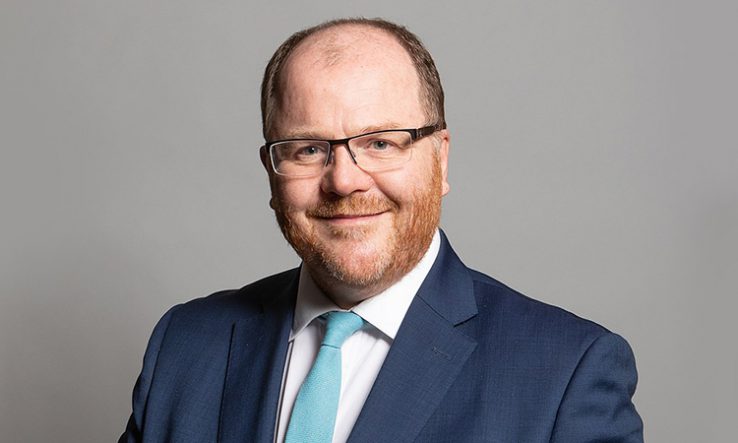
Image: Richard Townshend [CC BY 3.0], via Wikimedia Commons
Horizon Europe membership remains the priority—but alternatives are on standby, writes George Freeman
From the steam engine to the jet engine, from graphene to genomic surveillance of the Covid virus, the UK has long been the birthplace of groundbreaking innovations. Home to some of the world’s top universities and greatest labs and institutes, the country is rightly respected globally as a science and research powerhouse.
I know from my own career in the research sector that this is built on a tradition of blue-sky science, industrial R&D and the creative genius of our multidisciplinary research ecosystem, as well as a commitment to diversity and collaboration.
That is why Horizon Europe—the European Union’s key funding programme for research and innovation, worth €95.5 billion over seven years—has been such a valuable initiative for strengthening UK research. EU programmes have provided long-term fellowships and international industrial collaborations for UK universities and researchers.
The government deliberately made association to Horizon, Euratom and Copernicus a part of the EU-UK Trade and Cooperation Agreement last December. The UK and the EU have signed a shared commitment to the UK’s association to Horizon, and we have been pushing for the EU to formalise this for 11 months.
Our commitment to Horizon Europe and related research programmes is clear and was confirmed by the chancellor’s provision of roughly £5.6bn for participation over the next several years. This forms part of a significant increase in public research funding to £20bn per year by 2024-25, the biggest ever increase over a spending-review period.
Funding guarantee
We are very disappointed by the persistent delays from the EU in formalising associate membership. This issue has been my top priority since becoming science minister eight weeks ago, and we know many in the EU recognise and support the UK’s participation.
In light of the delays, it is important to make our commitment to Horizon clear. We also need to reassure the research community that the UK government will support “in-flight” bids that would normally be eligible for EU funding. To that end, I have guaranteed funding for all successful applicants for Horizon funding who have been unable to sign EU grant agreements.
Delivered through UK Research and Innovation, this funding is a short-term measure designed to give innovators and businesses the stability and reassurance they need to continue applying to Horizon funding calls. UKRI will publish further details over the coming weeks.
Whatever happens, we will put a coherent and compelling offer in place to provide the collaborations, fellowships and industry engagement our research community needs. Should we find ourselves no longer participants in Horizon Europe, we will implement a comprehensive alternative, providing immediate stability and support to researchers and innovators, and guaranteeing the availability of funding.
I have asked my department and UKRI to step up work on our ambitions for global science fellowships and collaborations (‘Horizon+’) to ensure the UK has a strong global offer in all eventualities. Our strong preference is for that to be built around Horizon membership, but, if the EU stands in our way, we are ready with a seamless transition to something just as good, or better.
Broader horizons
In the longer term, we would establish an ambitious offer that delivers many of the advantages of Horizon association along with additional benefits of wider global participation. Partnerships with the European research community will remain at the core of our international research offer, but we are also looking to strengthen other relationships, including in the Indo-Pacific and North America.
We are developing both those research areas where the UK holds a strategic advantage, and those where we might lead in the future, such as artificial intelligence, fusion energy, and others outlined in the 2020 R&D Roadmap and 2021 Innovation Strategy. This is in addition to the new science that the Advanced Research and Invention Agency is being created to explore.
Retaining and attracting top talent is the single most important objective. Whether in or alongside Horizon, I am determined to support both established and young research leaders. Our ambition for the UK to stand as a science superpower that attracts international collaboration and global talent is non-negotiable.
This is an exciting time for UK science and research. The pace of advances in science and technology, and the need to tackle global grand challenges and develop a more sustainable model of growth, create an opportunity for the UK to be a global powerhouse of science and innovation for the global good. We must seize it.
George Freeman is the minister for science, research and innovation in the UK’s Department for Business, Energy and Industrial Strategy
A version of this article also appeared in Research Fortnight and in Research Europe